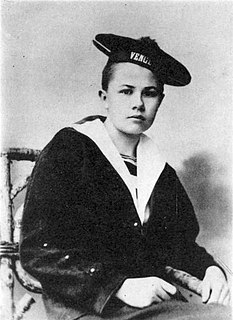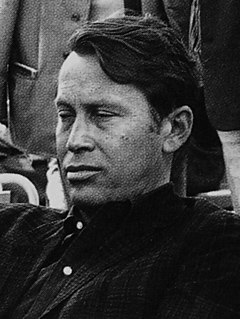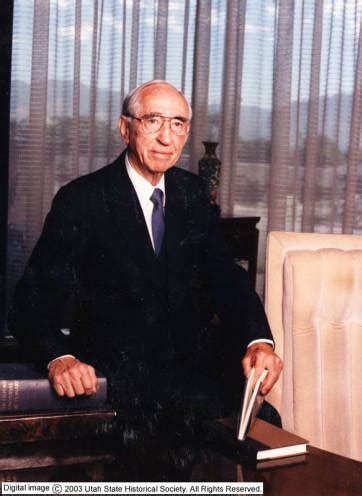A Quote by Paula Gunn Allen
In the Native American tradition... a man, if he's a mature adult, nurtures life. He does rituals that will help things grow, he helps raise the kids, and he protects the people. His entire life is toward balance and cooperativeness. The ideal of manhood is the same as the ideal of womanhood. You are autonomous, self-directing, and responsible for the spiritual, social and material life of all those with whom you live.
Quote Topics
Adult
American
American Tradition
Autonomous
Balance
Directing
Does
Entire
Entire Life
Grow
Help
Helps
His
Ideal
Kids
Life
Life Is
Live
Man
Manhood
Material
Mature
Native
Native America
Native American
People
Protects
Raise
Responsible
Rituals
Same
Self
Social
Spiritual
Things
Those
Toward
Tradition
Whom
Will
Womanhood
Related Quotes
The Latin American has no tribe to fall back on, as the African does, no reliable judiciary to defend his rights as the European does, no social ideal or sacred constitution as the North American does, no pervasive mythology to soften life as it does in Asia, and no even an ideology to subscribe to, as does the Russian or Chinese. Without wealth, what is there left to him but his manhood, to be flaunted and defended at every occasion?
To affirm life is to deepen, to make more inward, and to exalt the will-to-life. At the same time the man who has become a thinking being feels a compulsion to give every will-to-live the same reverence for life that he gives to his own. He experiences that other life as his own. He accepts as being good: to preserve life, to raise to its highest value life which is capable of development; and as being evil: to destroy life, to injure life, to repress life which is capable of development. This is the absolute, fundamental principle of the moral, and it is a necessity of thought.
The American ideal of sexuality appears to be rooted in the American ideal of masculinity. This idea has created cowboys and Indians, good guys and bad guys, punks and studs, tough guys and softies, butch and faggot, black and white. It is an ideal so paralytically infantile that it is virtually forbidden - as an unpatriotic act - that the American boy evolve into the complexity of manhood
It isn’t necessary to know exactly how your ideal life will look; you only have to know what feels better and what feels worse…Begin making choices based on what makes you feel freer and happier, rather than on how you think an ideal life should look. It’s the process of feeling our way toward happiness, not the realization of the Platonic ideal, that creates our best lives.
I will only ever be drawn to people who suffer from that special and fertile anguish called self-doubt, or the thirst for the ideal, and desire for the soul's mystical fire. Self-satisfaction because of some material accomplishment will never be for me. The truly great are those who quest for better spiritual selves.
It is sometimes said that the tragedy of an artist's life is that he cannot realise his ideal. But the true tragedy that dogs the steps of most artists is that they realise their ideal too absolutely. For, when the ideal is realised, it is robbed of its wonder and its mystery, and becomes simply a new starting-point for an ideal that is other than itself.
It is not necessary for a man to be actively bad in order to make a failure in life; simple inaction will accomplish it. Nature has everywhere written her protest against idleness; everything which ceases to struggle toward an ideal, the constant effort to get higher and further, which develops manhood and character.
People who have never had an ideal may hope to find one; they are in a better state than the people who allow the circumstances of life to break their ideal. To fall beneath one's ideal is to lose one's track in life; then confusion rises in the mind, and that light which one should hold high becomes covered and obscured, so that it cannot shine out to light one's path.
It is not good enough to know why we are oppressed and by whom. We must join the struggle for what is right and just. Jesus does not promise that it will be an easy way to live life and His own life certainly points in a hard direction; but it does promise that we will be "satisfied" (not stuffed; but satisfied). He promises that by giving life we will find life - full, meaningful life as God meant it.
Perhaps the highest goodness attainable is a life of service to all mankind. Such an ideal is supported in nearly every page in the Gospels-the parables, the sermons, and the countless acts of service by our Lord Himself. The ideal is not limited to any particular kind of service, nor a given quantity of service. The ideal is accepting life itself as a trust to be used in the welfare of mankind. It is a life that is glad for the chance to be of any help, an attitude that 'service is the rent we pay for our own room on earth.' (Lord Halifax)






































